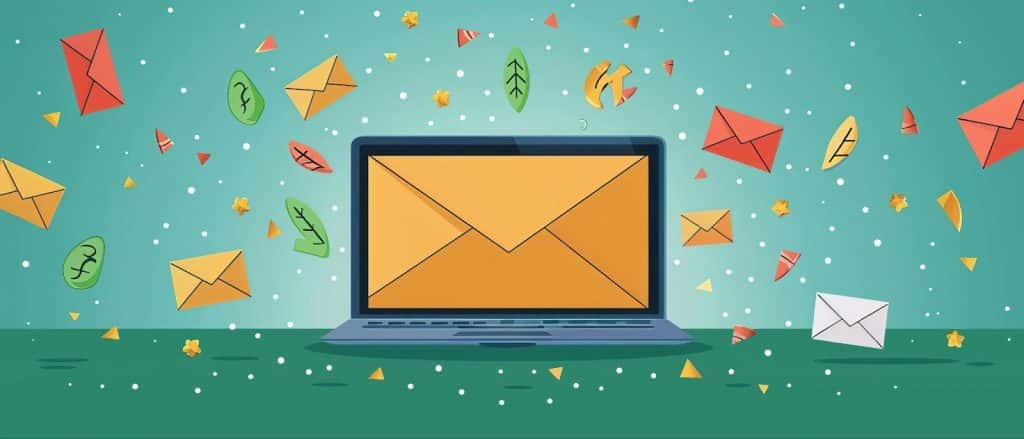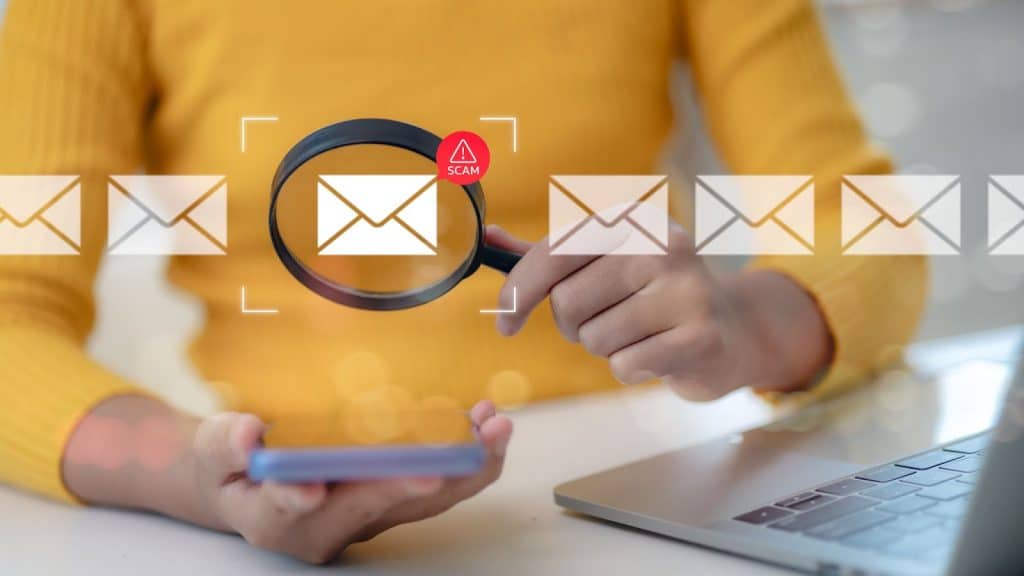Crafting the perfect email subject line is an art form that will significantly boost your open rates and engagement. Whether you’re a seasoned marketer or new to the game, you need to understand the dos and don’ts of email subject line creation.
In this comprehensive guide, we’ll explore the importance of nailing that first impression with your audience and provide actionable tips to ensure your emails get opened and make a lasting impact.
From leveraging precise wording to understanding what pitfalls to avoid, prepare to transform your approach to email marketing with expert insights into crafting compelling subject lines.
Keep reading to learn everything you need to know and how an email marketing agency can help.
The importance of subject lines
Email subject lines are the gatekeepers of your email marketing campaigns. They are the first impression made on your recipients, and in many cases, they determine whether an email is opened or bypassed. The significance of crafting an effective subject line cannot be overstated; it directly impacts the success of your email efforts.
First impressions count
In the crowded space of an email inbox, your subject line competes with dozens, if not hundreds, of others. It needs to stand out. A compelling subject line grabs attention and encourages recipients to click through rather than continue scrolling.
Direct impact on open rates
Statistics show that 47% of email recipients open an email based solely on the subject line, and 69% report email as spam based on the subject line alone. This underscores the subject line’s role in the effectiveness of email campaigns.
A well-crafted subject line may significantly boost your open rates, while a poorly designed one will lead your email straight to the trash or spam folder.
Sets the tone and expectations
Your subject line sets the tone for the email’s content. It gives recipients a preview of what to expect, which, if aligned accurately with the message content, may enhance trust and credibility. Misleading subject lines lead to disappointment and mistrust, damaging your brand’s reputation.
Optimization for deliverability
Subject lines also affect whether your emails reach the inbox. Certain trigger words or practices (like using all caps or excessive exclamation marks) prompt email providers to flag your messages as spam, reducing overall deliverability rates.
The subject line is a critical component of your email marketing strategy. It acts as an essential driver of open rates and as an ambassador for your brand’s message and values, making its optimization key for successful engagement and conversion rates.

The DO’s of creating engaging email subject lines
Be concise
Keep your subject lines concise. Ideally, aim for 50 characters or less. Short subject lines are scannable and convey the message quickly, which is especially important on mobile devices with limited screen space.
A good example would be: Meet your style match!
Use action-oriented verbs
Starting your subject line with an action verb makes it more enticing and direct. This approach encourages action and sets a dynamic tone for your email.
An example of this is: Claim your free trial now!
Personalize when possible
Including the recipient’s name or other personal details in the subject line may increase open rates by making the email feel more tailored and less like mass marketing.
An example of this would be: John, check out these handpicked deals
Ask questions
Posing a question in your subject line sparks curiosity and makes the recipient ponder their own answer. This strategy engages them immediately, increasing the likelihood of opening the email.
A good example of this is: Ready to double your productivity?
Create a sense of urgency
When appropriate, infuse your subject lines with urgency to compel readers to act quickly. This tactic is particularly effective for time-sensitive offers and reminders.
An example of this is: Hurry! Sale ends in 24 hours!
Use numbers and lists
Numbers and list-based subject lines set clear expectations about the email’s content and stand out visually in the inbox.
An example of this would be: 5 Secrets to a Perfect Pie!
Test and optimize
Always test different subject lines to see what resonates best with your audience. A/B testing reveals valuable insights that allow you to refine your approach continually.
An example of this is:
A: “10 Ways to Improve Your Writing”
B: “Improve Your Writing With These 10 Tips”
By integrating these practices into your email marketing strategy, you’ll significantly enhance the effectiveness of your campaigns. Each element — from personalization to urgency — plays a critical role in capturing attention and driving higher open rates.

The DON’Ts of creating engaging email subject lines
Now that we’ve examined how to create these email subject lines, let’s look at what to avoid.
Avoid overuse of caps and exclamation points
Using all caps or excessive exclamation points comes across as yelling in an email. Not only can this turn off recipients, but it also triggers spam filters, which might prevent your email from reaching the inbox altogether.
This is what we mean: HUGE SALE!!! EVERYTHING MUST GO!!!
Instead, opt for a tone that invites rather than pressures, like Big savings on your favorite styles!
Steer clear of clickbait
While you want enticing subject lines, they should always align honestly with the content of your email. While misleading subject lines may temporarily boost open rates, they erode trust and increase unsubscribe rates when readers feel duped.
Here’s what we mean: You Won’t Believe What Happened Next!
A better alternative would be specific and truthful, such as: See the latest updates to our service.
Don’t be too vague
Vague subject lines fail to spark interest or convey the email’s value, leading to lower open rates. It’s important to be specific enough to give recipients a clear reason to open the email.
Avoid an email subject line like Monthly News.
Instead, a more compelling subject line would provide specifics, like June news: Updates and exclusive insights!
Avoid overusing buzzwords
Buzzwords or jargon will make your subject line feel generic or insincere. While some industry-specific terms resonate with certain audiences, it’s important to keep your language clear and accessible to ensure broad appeal.
A poor example would be Leveraging synergistic solutions for growth!
A clearer and more appealing line might be, Discover new strategies for increasing your sales.
Don’t ignore mobile users
With most emails being opened on mobile devices, consider how your subject lines will display on smaller screens. Long subject lines can be cut off, so it’s important to keep them concise and ensure the most important information is at the beginning.
A poor example would be Exciting Opportunities to Enhance Your Professional Network and Skill…
An example would be Expand Your Skills with New Career Opportunities!
You’ll craft effective and engaging email subject lines by avoiding these common pitfalls. These best practices help maintain the integrity of your message and improve the overall success of your email marketing efforts.

Advanced tips and tricks
Incorporating emojis
Emojis add personality and visual appeal to your email subject lines, making them stand out in a crowded inbox. When used appropriately, emojis convey emotions or ideas quickly and attract the recipient’s eye. However, use them sparingly and ensure they are relevant to the content of your email to maintain professionalism.
Good practice
Use an emoji at the beginning or end of your subject line to capture attention without overwhelming the message. For example, “🔔 New updates to our privacy policy” or “Happy Holidays from our team 🎄.”
Test how emojis display across different email platforms and devices to ensure they appear as intended and don’t distort your message.
Segmentation and targeting
Tailoring your subject lines to specific audience segments may significantly increase open rates. Using data such as demographics, past behavior, and purchase history, you’ll be able to customize your subject lines to resonate more deeply with different groups.
Example
For customers who have previously purchased children’s books, a subject line like “📘 New adventures for young readers!” is more appealing than a generic “Check out our latest books.”
Strategy
Develop multiple versions of your email campaigns with different subject lines that appeal to different segments. This personalized approach will lead to higher engagement and more effective campaigns.
Timing and frequency considerations
The timing of your email sends will impact how your subject lines are perceived. Subject lines that align with specific times of day, days of the week, or even current events may feel more relevant and urgent to the recipient.
Timing tips
For B2B audiences, sending emails during weekday business hours might perform better, whereas B2C audiences might engage more during evenings and weekends.
Frequency
Be mindful of how often you send emails to avoid recipient fatigue. Overloading your audience may lead to disengagement, where even the most well-crafted subject lines will start to lose their effectiveness. Regularly review your email metrics to find the optimal balance that keeps your open rates high without overwhelming your subscribers.
By implementing these advanced techniques, you’ll further refine your approach to email subject lines, ensuring they capture attention and foster a stronger connection with your audience. This leads to improved open rates and, ultimately, more successful email marketing campaigns.
Leveraging technology to craft the perfect email subject lines
Using some tools is a good idea for consistently hitting the email subject line mark. Here’s a deep dive into the types of tools that can transform your email subject lines from good to great:
Subject line generators
Subject line generators harness the power of artificial intelligence to provide a plethora of creative options based on your campaign’s core themes and keywords.
These tools offer a quick way to generate ideas that may not have occurred to you, sparking creativity and innovation in your email strategies. For example, CoSchedule’s Email Subject Line Tester suggests alternatives and rates your proposed subject lines, helping you choose the one most likely to succeed.
A/B testing platforms
No email marketing strategy is complete without the insights gained from A/B testing. By employing platforms such as Mailchimp or Campaign Monitor, you can pit different subject lines against each other, directly measuring their effectiveness in engaging your audience.
This methodical testing allows you to fine-tune your messages based on definitive data, ensuring your subject lines truly resonate with recipients.
Analytics and reporting software
Platforms like HubSpot or Google Analytics provide detailed reports on your subject lines’ performance in terms of open rates and click-through rates, offering a clear picture of what styles and formats work best with your audience.
Integrated email marketing solutions
Integrate your subject line tools with your broader email marketing platform to streamline your process. This integration ensures that every component of your campaign works harmoniously, allowing for seamless implementation of tested and optimized subject lines. It simplifies the workflow, from creation to deployment, ensuring that your campaigns are both efficient and effective.

FAQs
- How long should my email subject line be?
Ideally, keep your subject lines under 50 characters to ensure they are fully visible on most devices, especially mobile. Conciseness helps maintain clarity and impact. - Is it okay to use emojis in professional emails?
Yes, but use them judiciously. Emojis add a touch of personality and draw attention if relevant to the content. Ensure they are appropriate for your audience and brand voice. - How can I prevent my email from being marked as spam?
Avoid using all caps, multiple exclamation points, and spam-trigger words like “free,” “guarantee,” or “no risk.” Also, maintain a healthy sender reputation with good email practices. - What are some practical ways to personalize email subject lines?
Include the recipient’s name or other personal details relevant to them, such as their job title or recent purchase. Personalization will significantly increase open rates. - How often should I test my email subject lines?
Regularly. A/B testing different subject lines with segments of your audience will provide insights into what resonates best, allowing you to refine your approach continuously. - Can asking a question in the subject line increase email opens?
Yes, questions can pique curiosity and prompt the recipient to open the email for the answer, especially if the question is relevant to their interests or challenges. - What is the best time to send emails?
This varies depending on your audience. Test different times and days to discover when your subscribers are most likely to open and engage with your emails. Generally, mid-morning on weekdays works well for professional audiences, but consumer-focused emails might perform better in the evenings or on weekends. - How do I create a sense of urgency in my email subject lines?
Use time-sensitive language and phrases that prompt immediate action, such as “limited time,” “last chance,” or “offer ends soon.” Ensure the urgency is genuine to maintain trust. - Should I capitalize each word in my email subject line?
This style can be used to draw attention but should be balanced with readability and the overall tone of your message. Test to see if this style increases open rates for your audience. - How important is consistency in email subject lines?
Very important. Consistent tone and style in your subject lines help build brand recognition and expectation among your audience, contributing to long-term engagement.
Create powerful email subject lines with Revity Marketing
Are your email campaigns missing the mark? It might be time to rethink your subject lines, and Revity is here to help. As a leading email marketing agency, we specialize in devising email strategies that capture attention while driving meaningful engagement and conversions.
Our team of experienced marketers understands the nuances of email communication and is adept at crafting subject lines that resonate with diverse audiences.
At Revity, every email is an opportunity to strengthen customer relationships. That’s why we focus on personalized, creative, and strategic email solutions tailored to meet your unique business needs and marketing goals.
Whether you’re looking to boost open rates, improve click-throughs, or enhance overall campaign performance, our experts have the tools and knowledge to elevate your email marketing game.
Don’t let your messages get lost in the shuffle. Partner with Revity as your email marketing agency, and let us show you how impactful well-crafted email subject lines can be. Contact Revity Marketing today to learn more about our services and how we can help you achieve outstanding results with every send.







